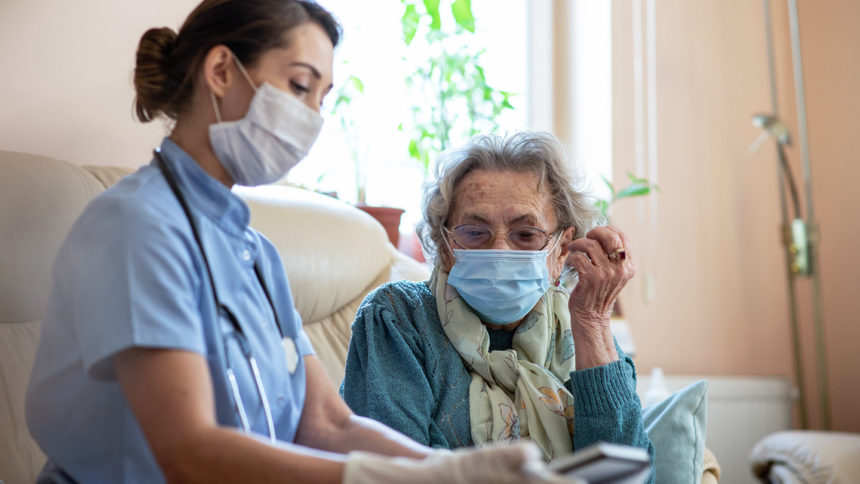
The senior living industry will be “left behind again” if the formula for Phase 4 Provider Relief Fund bonus payments considers only Medicare reimbursement to facilities without also considering the amount of care provided to Medicare beneficiaries who live in those facilities, Argentum said Monday in a letter to the federal government.
Assisted living operators should be given equal consideration with nursing homes and other types of providers for bonuses intended for providers serving older adults, the association said.
The U.S. Department of Health and Human Services recently announced the opening of the application portal for the final $25.5 billion available in Phase 4 Provider Relief Fund monies. Assisted living operators will compete with multiple healthcare providers for $17 billion in funding based on documented revenue losses and COVID-related expenses.
Phase 4 distributions also will include bonus payments for providers who serve Medicaid, Children’s Health Insurance Program and / or Medicare beneficiaries who have low incomes and have more complex medical needs. Assisted living providers do not qualify for those bonus payments, however, except in rare cases when an operator might bill Medicare or Medicaid as part of an affiliated skilled nursing facility.
But assisted living communities care for almost two million older adults, Argentum President and CEO James Balda told HHS Deputy Secretary Andrea Palm. And companies in the industry collectively have incurred approximately $30 billion in COVID-related expenses, but they have received a “disproportionately insufficient” amount of relief funding, less than 0.4% of it, he said.
“Despite the fact that assisted living facilities care for Medicare beneficiaries, these providers do not receive any Medicare reimbursement,” Balda wrote. “And while skilled nursing facilities and other providers will be eligible for bonus payments as a result of receiving Medicare funds, assisted living providers would be left behind again, even though they have cared for the same seniors and incurred the same losses and increased expenses.”
The CEO asked HHS to “recognize the critical care being provided in the assisted living setting” and allow communities to receive the bonus payments as well as targeted additional relief for frontline providers.
Another request: Coordinated COVID vaccine booster program
In addition, Balda requested a coordinated COVID-19 booster shot program. Through the Pharmacy Partnership for Long-Term Care Program, the association noted, assisted living communities were able to achieve overall vaccination rates that were higher than 99% of all U.S. counties. More than 90% of residents and more than 80% of workers were inoculated under the program.
The association raised concerns that not enough support exists for clinics to effectively administer booster doses. Potential supply chain issues, increased demand for booster doses and initial shots, as well as compliance with company, state and local vaccine mandates are areas of concern, Argentum said.
Without a coordinated vaccination program for boosters, Balda said, it is “imperative that the administration provide necessary coordination to ensure vaccines are able to be administered as efficiently as possible so we may continue protecting our nation’s most frail seniors.”




